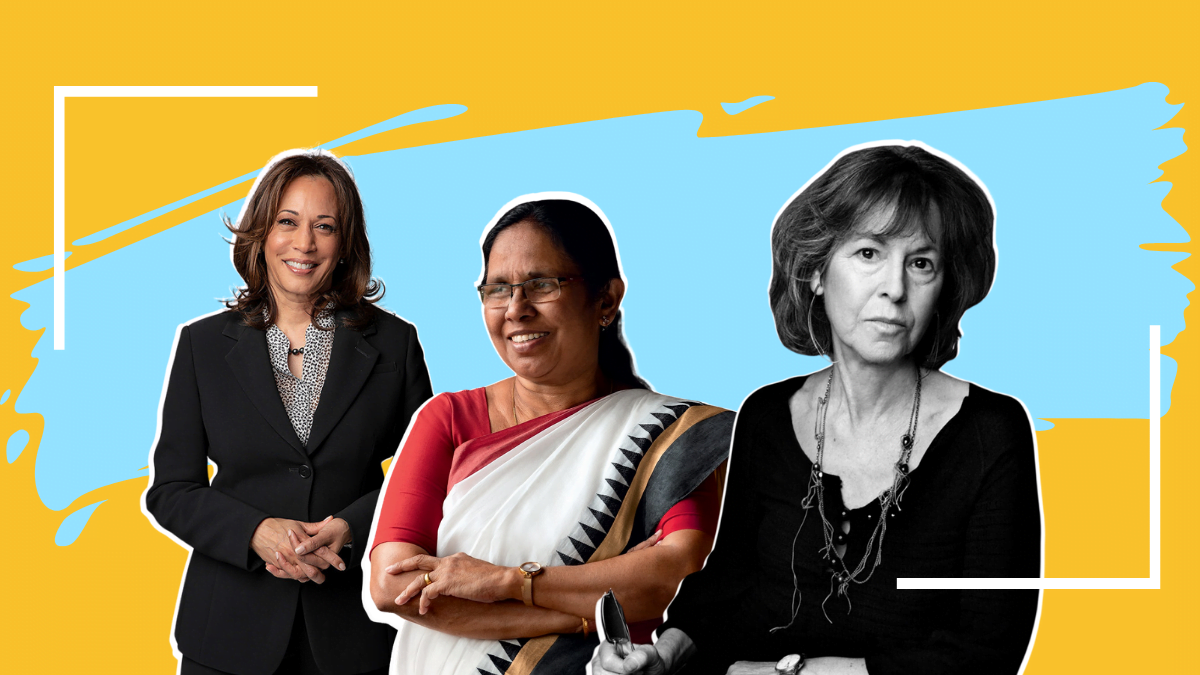“One is not born, but rather becomes a woman.”
These words by Simone de Beauvoir accentuate on the complexities concerning gendered notions that are prevalent in the society. The sex-gender debate have long been originated but, in my opinion, the logical difference between the two terms is yet to penetrate the minds of people well. Most distinctions we see or are made to believe are ill-constructed notions of society and that’s exactly when the term gender comes into the scenario, and with it comes ideas of femininity and masculinity.
Taking cue from this difference between the two terms, many feminists have tried to analyse the cultural connotations attached to it. One of them is Moira Gatens, an Australian feminist and philosopher, who asserts that the male and the female bodies have quite different social values and significances which have marked effect on male-female consciousness. The male body is imbued in our culture as being supreme in a patriarchy.
Having said that, we can easily drive home the point that patriarchy attempts to maintain itself through myriad social values and norms, which find expression in gendered socialisation which, in turn, reinforces gender stereotypes. In this respect, women too, to some extent seem to extend their support to it. Commenting on a similar socio-cultural phenomena, Mary Wollstonecraft remarks,
“Women are told from their infancy, and taught by the example of their mothers, that a little knowledge of human weakness, justly termed cunning, softness of temper, outward obedience, and a scrupulous attention to a puerile kind of propriety, will obtain for them the protection of man; and should they be beautiful, everything else is needless, for, at least, twenty years of their lives.”
Angela Merkel of Germany, and Jacinda Ardern of New Zealand and in India, K K Shailaja, politician and current Minister of Health and Social Welfare of Kerala state, came forth only to show how better equipped women are with the qualities of leadership, intelligence and courage.
From an Inferior Past to a Vocalised Present
Since the dawn of civilisations in most of places, women were treated as a second sex, compelling them to accept and even conform to the norms that this inferior position had to accord them. From a time when women struggled to gain the right to vote to when they agitated to take charge of their bodies, deciding when or when not to carry a child; from a time when women silently fought their everyday battles of having access to education to when violence of all sorts against them shattered their patience and they took to streets to rebel; from a time when women drained their aspirations to attend their domestic responsibilities, we seem to have come a long way. And that too for the better.
Moreover, the hard work of many scholars culminated in the formulation of a concept called ‘intersectional feminism’ which is increasingly gaining preponderance and enables us to comprehend why and how the life chances of women vary across societies and that women experience domination and are discriminated against in varying configurations. For it states that oppression or domination is something that cannot be understood in isolation, it is ought to take cognizance of related factors such as sexuality, class, ethnicity, disability, race, nationality, caste and so on.
It is in this process that this idea seeks to expose internalised dominance which stems from the privileged position in society, which in turn, is attributed to the existence of age-old prejudices and stereotypical mindsets of individuals. Taking this principle into account will make every voice count and contribute to our understanding of the plight of women relegated in the domestic sphere and also, of the women who participate in the affairs of the public sphere and their challenges.
Also read: Don’t ‘Empower’ Women—The Hoax That ‘Women Empowerment’ Is Today
2020 And The Expansion Of The Meaning of Women Empowerment
As I check my phone every day to arm myself with all that’s happening around the globe, I’m taken by sheer joy to come across inspirational stories and shining examples that women are setting since the beginning of 2020. Three major events, I find worth mentioning are:
- The successful administration of COVID-19 by female world leaders
When ‘Coronavirus’ had brought the entire world to a complete standstill during the months of March-June, women leaders of the world—Angela Merkel of Germany, and Jacinda Ardern of New Zealand and in India, K K Shailaja, politician and current Minister of Health and Social Welfare of Kerala state, came forth only to show how better equipped women are with the qualities of leadership, intelligence and courage.
Thus, female world leaders have successfully smashed gender prejudices, taboos and decided to be the custodian not only of their lives but also of their State and the world at large.
- Women stealing the show at the Nobels, 2020
The declaration of Nobel laureates in 2020 across various fields has also set an example. The women who stole the show at the Nobles this year are America’s Louise Gluck (the poet took the literature prize), Andrea Ghez (who won it for physics) and Jennifer Doudna who won the chemistry award with France’s Emmanuelle Charpentier. All of them have crushed the glass ceiling, proved their worth and have supported the claims made by many women that if given adequate opportunities and support even women can do wonders.
This is a remarkable event since the number of women laureates has been increasing over the decades, with no women bagging the Nobel in 1950 to four women winning in 2020. Furthermore, the three women scientists have pulled off quite a feat in getting their prizes in two of the most male- dominated disciplines, that is, physics and chemistry. If this fact of growing significance of women’s intellect for the purpose of the larger good is not indicative of their importance and true emancipation, then what is?
- The USA gets its first female Vice-President
Joe Biden’s selection of Kamala Harris drew different reactions from all over the world. While one section thought that this selection has lent his campaign a thematic clarity that it lacked before, especially in a year in which circumstances have been even more rough for the black community in the USA with the outbreak of COVID-19, unemployment and more remarkably the shocking incident of police killing of George Floyd, the other section opined that this was a political ploy of the Democrats to have a favourable electoral verdict.
Nonetheless, the decision of nominating the first Asian-American woman and also, the first person of Asian descent is historic in itself. What was even more historic was the declaration of the results which supported the victory of Biden – Harris partnership. The event has further enlarged the meaning of women empowerment in 2020, for it is indicative of women’s participation in the decision making process in the world’s oldest democracy. It is to note how vital intersectionality in this regard has been and will continue to be while an Asian-American female holds a pivotal position in policy making.
Gender Stereotypes Restrict from Realising Potential of Individuals
Women are believed to have structured differently—biologically and psychologically—but what aggravates this difference is the inferior societal mental make-up, stereotypes and systematic discrimination meted out to women since their childhood. This perpetuates and endures structural inequalities based solely on a socio-cultural construct—gender. It is imperative for us to realise how catastrophic this can be for us and our society as curbing the freedom of an entire section of the population will not only infringe their dignity and fundamental freedoms, but will also hold back our socio-political and economic progress.
Therefore, the only solution, in my view, to rectify this is empowering women through education. As Mary Wollstonecraft had noted, “Strengthen the female mind by enlarging it, and there will be an end to blind obedience.” In this way women will realise their true potential to make both the domestic and the public sphere a better, respectful, and equal arena for themselves.
Women empowerment, in my view, is a process for a woman to take charge of her lives, in favour of their desires and rights. Even at the micro level, women with regular jobs are adding to change and inspiring every other woman they meet.
Furthermore, it shall aid women to engage in the activities of the public sphere and have a direct voice in influencing the matters which concern them or affect their interests in any manner. Education can lighten up even the darkest minds, consolidate its position by enlightening each generation which will consequently, lead to a world which has equal opportunities and rights to offer to every gender for real.
Also read: Cutting The Cycle Of Violence Through Girl And Women Empowerment
Conclusion
Women empowerment, in my view, is a process for a woman to take charge of her lives, in favour of their desires and rights. Even at the micro level, women with regular jobs are adding to change and inspiring every other woman they meet. Women balancing their professional and personal life, eluding the possibility of role conflict are winning at life. Change shall arrive but its pace hasn’t been fixed yet.
The baby steps are what will continue to matter. It’s the role we play as the members of society that will continue to matter. It’s the way we support each other as women, as mere human beings will continue to matter. For Mary Wollstonecraft has rightly said,
“The two sexes mutually corrupt and improve each other. This I believe to be an indisputable truth, extending it to every virtue. Chastity, modesty, public spirit, and all the noble train of virtues, on which social virtue and happiness are built, should be understood and cultivated by all mankind, or they will be cultivated to little effect.”
Kaushani Chakrabarti is a final year student at Lady Brabourne College, Kolkata, pursuing political science honours. You can find her on Instagram and LinkedIn.




